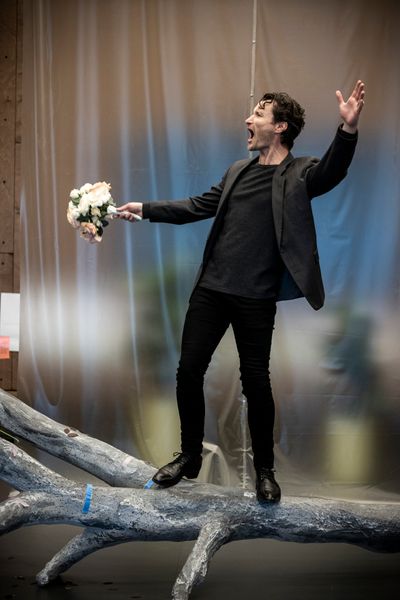
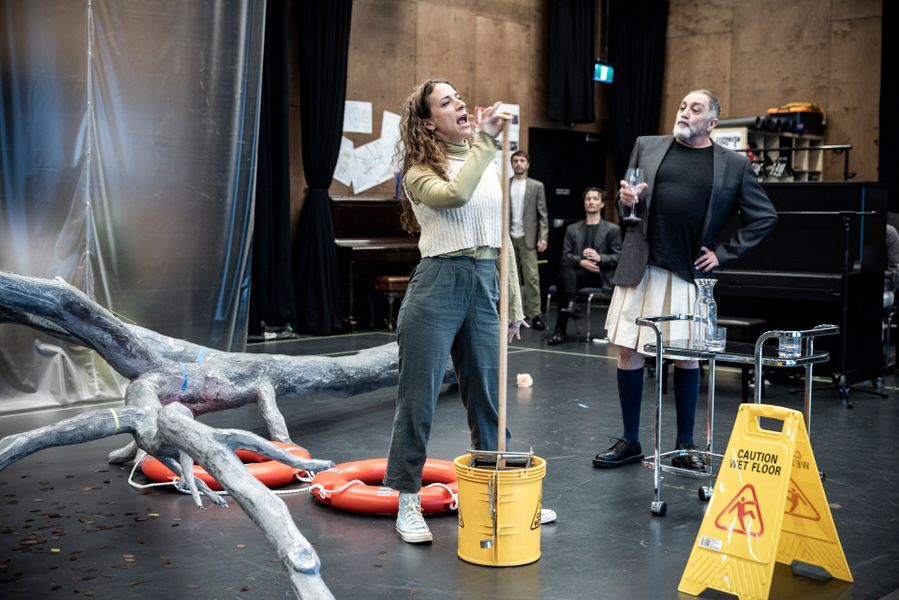
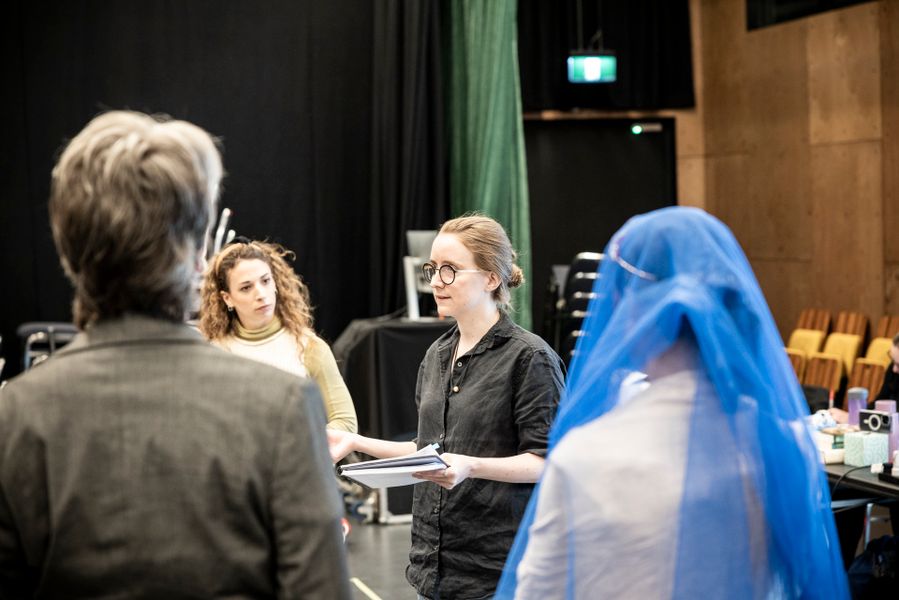
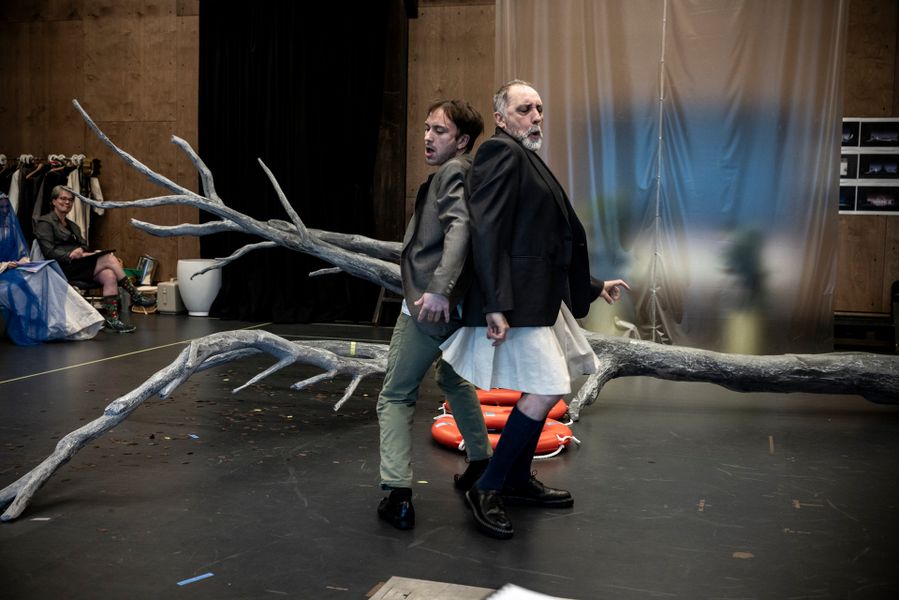
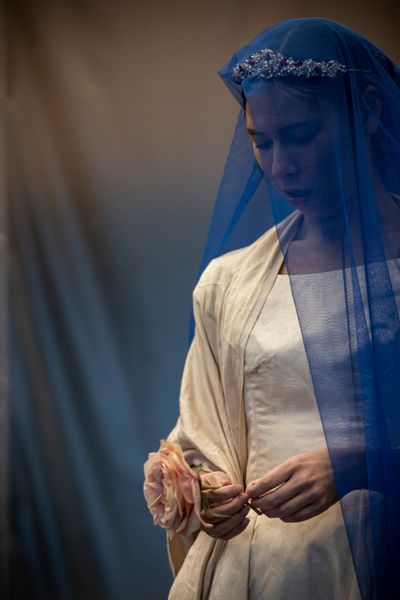
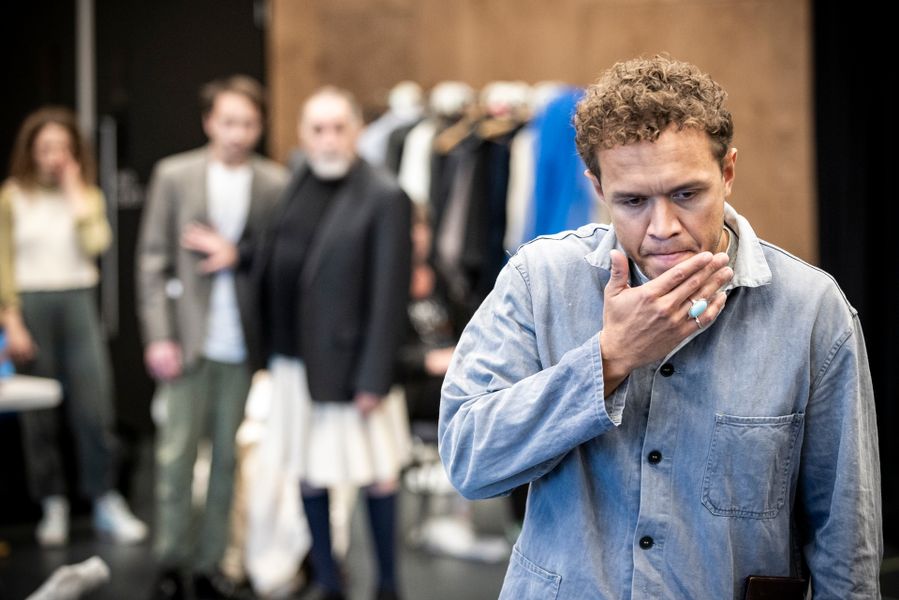
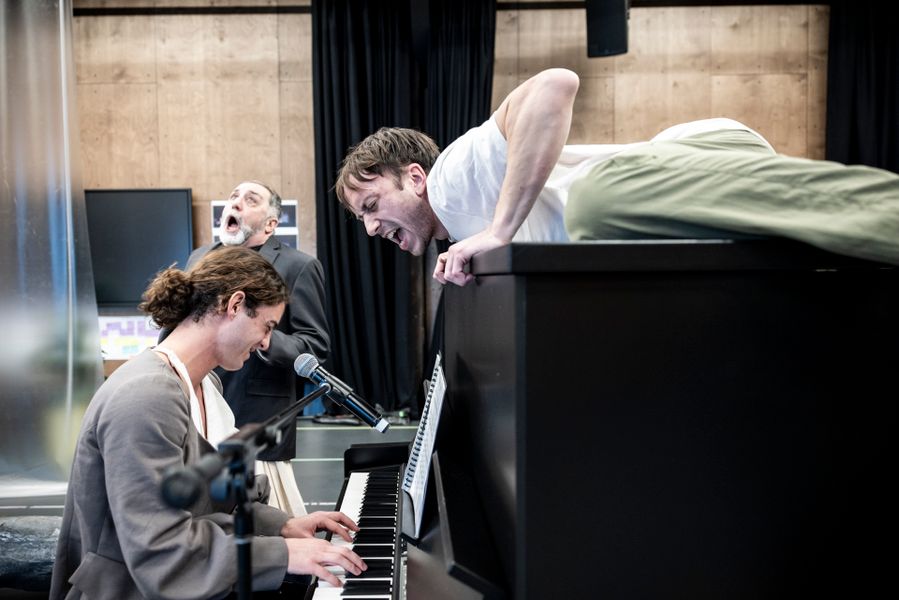
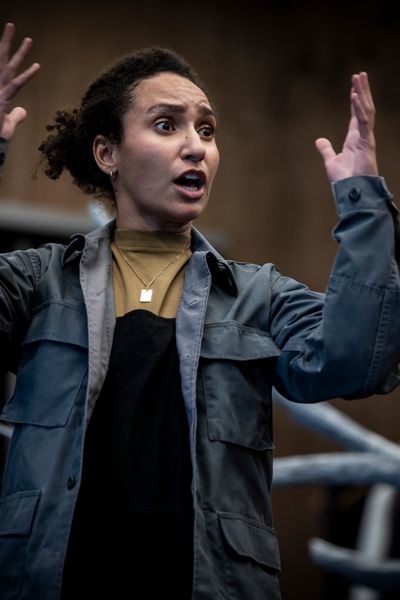

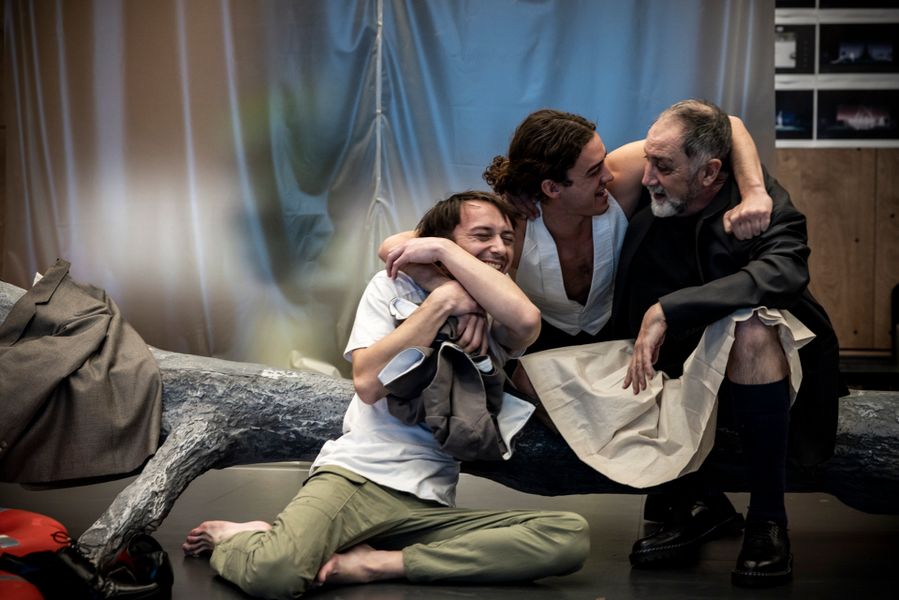


Your 5-minute guide.

We’ve done the research, so you can bluff your way through. Here’s a quickfire guide to all the thrills and spills (and ills) of Twelfth Night. Compiled by Andy McLean.
Viola A noblewoman who has a way with words. Shipwrecked in a strange land, Viola decides to disguise herself as a page boy named ‘Cesario’.
Duke Orsino The idle, rich Duke of Illyria. Whether it’s hunting wild animals or seeking romance, Orsino lives for the thrill of the chase.
Olivia Following the deaths of her father and brother in the past year, the countess Olivia has publicly committed to shunning male attention and mourning for the next seven years.
Malvolia The long-serving steward of Olivia’s household believes that “all that look on her love her”. In fact, she’s petty, hypocritical, and uptight.
Maria A chambermaid who serves Olivia while running rings around the rest of the household. Frequently peeved with Malvolia.
Feste A licensed ‘fool’ who entertains nobles with put downs, puns, and piss-taking. Feste is a social butterfly who flutters between Orsino and Olivia’s households.
Sir Toby Belch Gregarious and irresponsible, Olivia’s uncle loves nothing more than getting sozzled and playing pranks.
Sir Andrew Aguecheek Sir Andrew has more money than sense, which makes him an ideal plaything for Sir Toby.
Sebastian Separated from his beloved twin sister, Viola, in a shipwreck just before the start of the play.
Antonio A sailor who is a wanted man in Illyria, where he’s just washed ashore. Shares a deep personal bond with Sebastian.











Of all Shakespeare’s plays, Twelfth Night may be the most melodious. From the very first line (“If music be the food of love, play on”) to the very last (which is sung by Feste) music permeates this play.
When characters hear a tune, they often marvel at how it echoes their emotional states:
Orsino: How dost thou like this tune?
Viola: It gives a very echo to the seat
Where love is throned.
The romantic hero of the story (Viola) is named after a musical instrument. At pivotal moments, she often expresses herself in lyrical rhyming verses, such as Act 1 Scene 4:
Yet, a barful strife
Whoe’er I woo, myself would be his wife
And in Act 2 Scene 2:
O time, thou must untangle this, not I.
It is too hard a knot for me t’untie!
As you’ll see (and hear) Bell Shakespeare’s new production celebrates the musical joy of Twelfth Night. Australian songwriter Sarah Blasko has crafted some achingly beautiful melodies to match Shakespeare’s lyrics and [spoiler alert] a piano plays an instrumental role in the action, too…
The stage design of our new production of Twelfth Night is steeped in the cycles of nature, just as Shakespeare’s language is:
“In nature there’s no blemish but the mind”
“For women are as roses, whose fair flower,
Being once display’d doth fall that very hour.”
“O, it came o’er my ear like the sweet sound
That breathes upon a bank of violets,
Stealing and giving odour.”
“An apple cleft in two is not more twin
Than these two creatures”
“Cesario, By the roses of the spring,
By maidenhood, honour, truth and everything,
I love thee so…”
“here comes the trout that must be caught with tickling.”
“Now is the woodcock near the gin.”
“A very dishonest and paltry boy,
and more a coward than a hare.”
“I’ll sacrifice the lamb that I do love
To spite a raven’s heart within a dove.
“That instant was I turned into a hart,
And my desires, like fell and cruel hounds,
E’er since pursue me.”
Festive frolics: The title of this play refers to the twelfth night after Christmas. In Shakespeare’s time, this day was associated with disguise, dancing, and disorder.
Twin tragedy: Shakespeare was a father of twins (Hamnet and Judith) who were baptised on 2 February 1585. Tragically, Hamnet died aged 11. On 2 February 1602, the first recorded performance of Twelfth Night took place, with Shakespeare’s fictional twins (Viola and Sebastian) reunited at the end.
Back to the future: When Twelfth Night was first staged, all the characters (male and female) were performed by men and boys. Every so often this approach is revived. In 2012, Stephen Fry and Mark Rylance led an all-male cast at Shakespeare’s Globe in London. And from 2003 to 2018, Declan Donnellan directed an all-male all-Russian production that toured the world.
Cross-dressing habit: Twelfth Night is one of several Shakespeare plays where a female character dresses up as a man. Other famous examples include Rosalind in As You Like It, Portia in The Merchant of Venice, and Julia in The Two Gentlemen of Verona.
Hooray for Hollywood: Twelfth Night first lit up the silver screen in a silent short film in 1910. Since then, notable film versions include Trevor Nunn’s 1996 movie (starring Helena Bonham Carter) and a 2006 reimagining She’s The Man (starring Amanda Bynes).